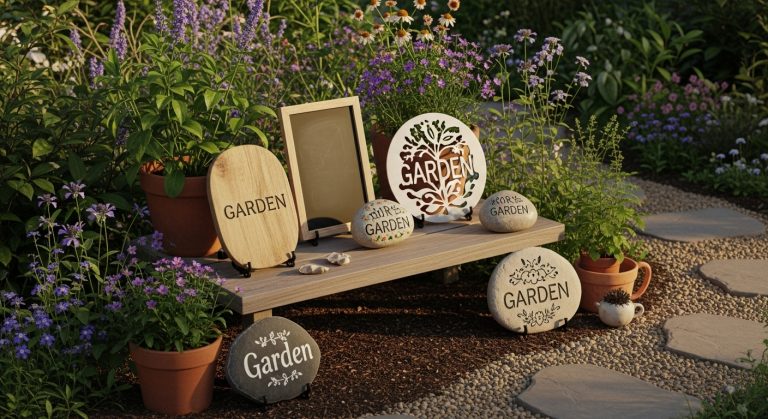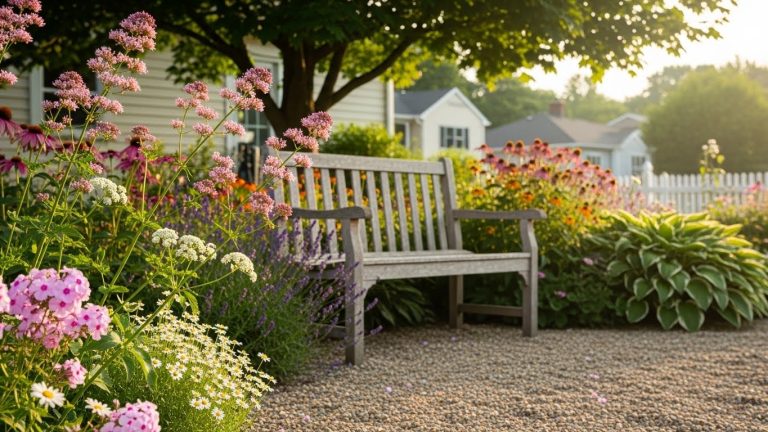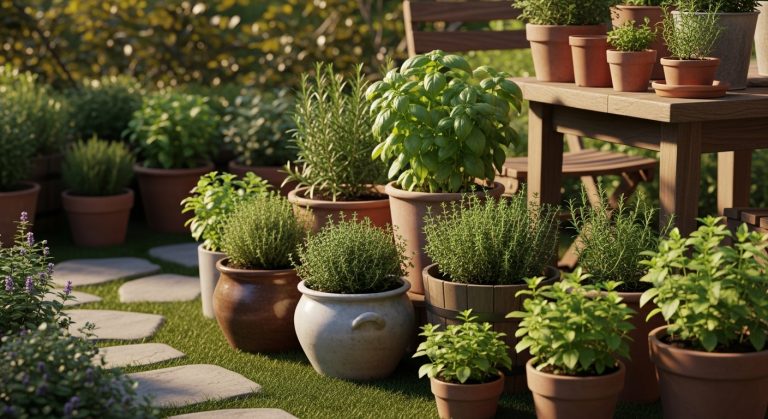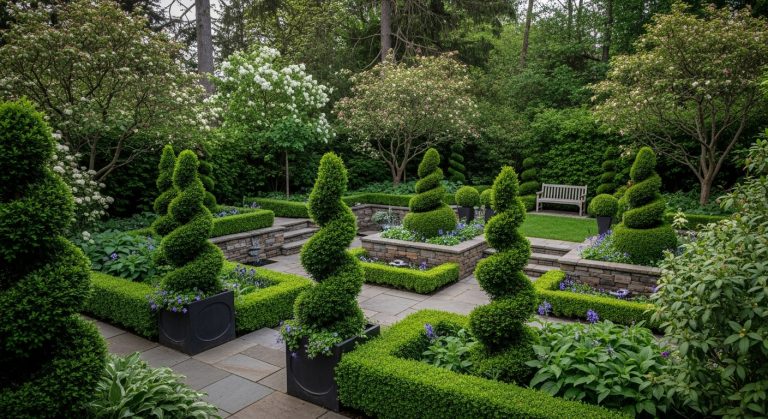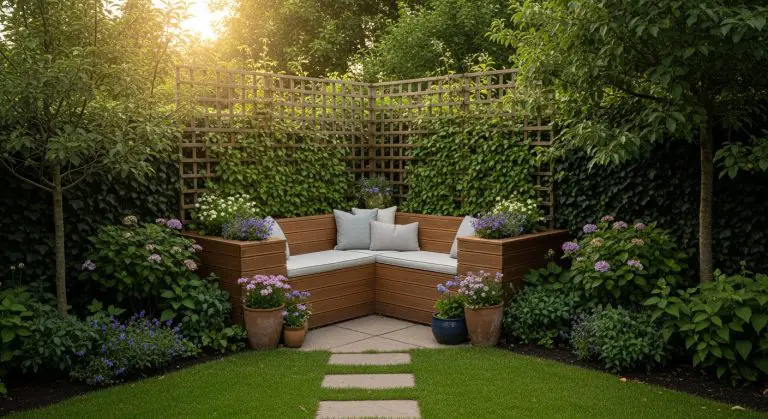Plant Box Outdoor Garden Ideas: 15 Creative Ways to Transform Your Outdoor Space
Have you ever walked into a garden and thought, “This feels alive, cozy, and just… right”? That’s the magic of a well-planned outdoor garden, and if you’re tight on space, or just crave a more organized yet natural look, plant boxes are your best friend. Whether you have a sprawling backyard or a tiny balcony, plant boxes let you grow flowers, vegetables, and herbs neatly while adding a stylish architectural touch.
The beauty of plant boxes is how versatile they are. You can line your patio with sleek modern boxes, stack them vertically for a green wall effect, or mix sizes and textures for a rustic, charming look. And let’s be honest — watching plants thrive in a box you designed yourself is immensely satisfying. Here, I’ve rounded up 15 brilliant plant box outdoor garden ideas that will inspire anyone to grab a trowel, some soil, and start creating their own little green paradise.

Nothing beats the timeless appeal of wooden plant boxes. Think pine, cedar, or oak — they bring warmth and a natural touch to any outdoor space.
Pros:
- Adds a rustic, earthy feel to patios or gardens.
- Wood is easy to customize — stain, paint, or leave natural.
- Perfect for both flowers and small vegetables.
Cons:
- Needs occasional sealing or treatment to avoid rot.
- Can be heavy, especially when filled with soil.
Takeaway:
Classic wooden boxes are versatile and cozy — perfect for anyone who loves that warm, inviting garden vibe.
2. Elevated Plant Boxes for Easy Gardening

Raise your garden literally. Elevated plant boxes reduce strain on your back and keep your greens safer from pests.
Pros:
- Ergonomic and easy to maintain.
- Keeps soil warmer in cooler months.
- Adds vertical interest to flat garden spaces.
Cons:
- Usually costlier than ground-level boxes.
- Might require sturdier support depending on soil weight.
Takeaway:
Elevated boxes are a game-changer for anyone who wants comfort without sacrificing style or functionality.
3. Mix-and-Match Modular Boxes

Modular boxes let you rearrange your garden like building blocks. Great for renters or those who like experimenting.
Pros:
- Flexible and adaptable over time.
- Encourages creativity in garden layout.
- Ideal for small or irregularly shaped spaces.
Cons:
- Modular pieces can shift or tip if not properly secured.
- Materials may vary in durability.
Takeaway:
Modular plant boxes turn your garden into a dynamic, ever-evolving space — creativity encouraged.
4. Herb Gardens in Tiered Boxes

Who doesn’t love fresh herbs just a few steps away from the kitchen? Tiered plant boxes maximize space and sunlight.
Pros:
- Efficient use of vertical space.
- Easy to water and harvest.
- Keeps herbs organized and visually appealing.
Cons:
- Smaller tiers may limit root growth.
- Needs good drainage to prevent waterlogging.
Takeaway:
Tiered boxes make herb gardening simple, stylish, and totally functional.
5. Colorful Flower Boxes

Brighten your outdoor space with bold flower-filled boxes. Mix perennials and annuals for continuous bloom.
Pros:
- Adds visual interest and seasonal flair.
- Attracts pollinators like bees and butterflies.
- Easy to swap colors and varieties each season.
Cons:
- Flowers may require regular watering and maintenance.
- Annuals need replanting each year.
Takeaway:
Flower boxes are a cheerful way to inject life and color into any patio, balcony, or garden.
6. Edible Plant Boxes

Think beyond aesthetics — plant boxes can feed you too. Tomatoes, peppers, and leafy greens thrive in contained spaces.
Pros:
- Fresh produce at arm’s reach.
- Encourages sustainable gardening.
- Can combine edible and ornamental plants.
Cons:
- Requires careful soil selection and nutrient management.
- Pests may target edible plants.
Takeaway:
Edible boxes are functional and beautiful, merging practicality with charm.
7. Vertical Wall Boxes

Vertical planters are perfect for small spaces. They turn walls into living canvases.
Pros:
- Saves ground space.
- Adds dramatic greenery to blank walls.
- Can create privacy screens.
Cons:
- Needs irrigation planning for even watering.
- Heavy when fully planted.
Takeaway:
Vertical plant boxes transform walls into vibrant, green art — ideal for patios and balconies.
8. Rustic Reclaimed Wood Boxes

Repurpose old crates, pallets, or wine boxes for a rustic, sustainable garden.
Pros:
- Eco-friendly and budget-conscious.
- Adds character and charm.
- Easy DIY customization.
Cons:
- Reclaimed wood may have uneven surfaces or splinters.
- Needs treatment to resist weathering.
Takeaway:
Reclaimed boxes give a garden personality and are a fun, creative project.
9. Concrete or Stone Plant Boxes

Industrial yet elegant — concrete and stone boxes offer durability and a modern aesthetic.
Pros:
- Extremely long-lasting and weather-resistant.
- Heavyweight prevents tipping in wind.
- Complements modern architectural styles.
Cons:
- Expensive and heavy.
- Limited mobility once installed.
Takeaway:
Concrete boxes are stylish, robust, and make a statement in contemporary gardens.
10. Multi-Purpose Planter Benches

Combine seating with greenery. Plant boxes with integrated benches are functional and stylish.
Pros:
- Provides seating while showcasing plants.
- Perfect for small patios or decks.
- Encourages outdoor relaxation and socializing.
Cons:
- Bench space may limit plant size or density.
- Needs proper construction for safety and durability.
Takeaway:
Planter benches blend functionality with aesthetics — a win-win for small outdoor areas.
11. Hanging Plant Boxes

Suspend planters from pergolas or hooks for a floating garden effect.
Pros:
- Great for maximizing vertical space.
- Creates layers and depth in small areas.
- Adds whimsical, airy charm.
Cons:
- Needs strong support and careful watering.
- Exposure to wind may affect delicate plants.
Takeaway:
Hanging boxes add movement and dimension, turning your garden into a lively, vertical paradise.
12. Geometric Modern Boxes

Sharp angles, clean lines, and uniform shapes give a minimalist modern feel.
Pros:
- Sleek and contemporary appearance.
- Works well in urban or modern landscapes.
- Easy to mix and match sizes.
Cons:
- Can feel stark if not softened with greenery.
- Usually more expensive than basic wood or plastic boxes.
Takeaway:
Geometric boxes make a striking visual impact while keeping your garden organized.
13. Curved or Organic-Shaped Boxes

Break away from rigid lines — flowing, curved boxes create a softer, natural look.
Pros:
- Mimics natural landscapes and meandering garden paths.
- Creates focal points and movement.
- Unique and eye-catching design.
Cons:
- Harder to fabricate than standard rectangular boxes.
- May require custom materials or DIY skills.
Takeaway:
Organic shapes make your garden feel alive and approachable, softening harsh lines.
14. Seasonal Rotation Boxes
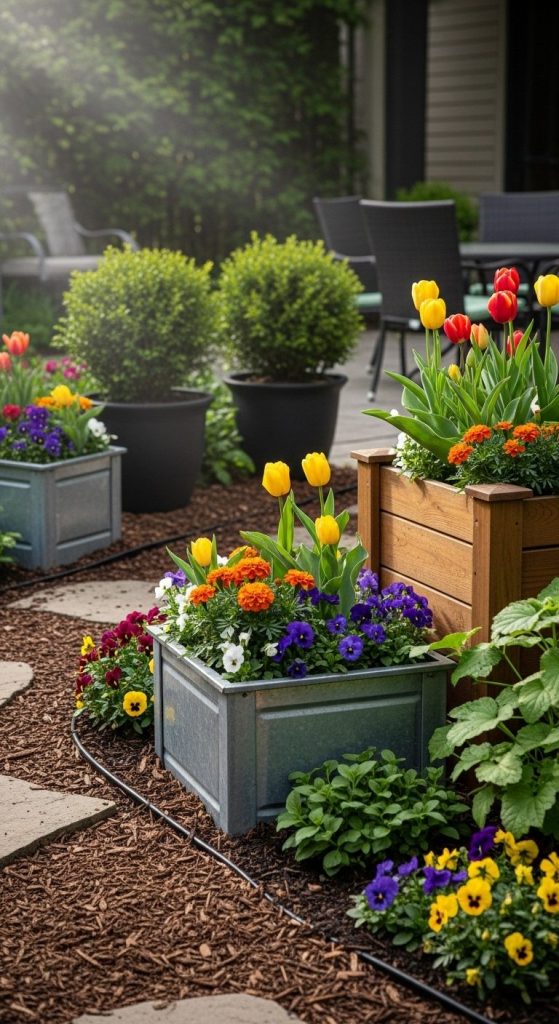
Swap plants according to season — tulips in spring, marigolds in summer, pansies in autumn.
Pros:
- Keeps the garden fresh and visually interesting year-round.
- Can experiment with color palettes and textures.
- Attracts seasonal pollinators.
Cons:
- Requires seasonal replanting and planning.
- Some plants may not thrive in quick rotation.
Takeaway:
Rotating seasonal plants ensures your garden never feels static, keeping your outdoor space lively.
15. Combination Plant Boxes (Mixed Uses)

Mix flowers, herbs, and vegetables in a single box for multifunctional beauty.
Pros:
- Combines aesthetics with practicality.
- Encourages biodiversity in your mini-garden.
- Makes efficient use of limited space.
Cons:
- Needs careful planning to avoid plant competition.
- Varied watering needs may complicate care.
Takeaway:
Mixed-use boxes maximize function and charm — perfect for small urban gardens or creative gardeners.
Conclusion
Plant boxes are more than containers; they’re building blocks for creativity, style, and productivity in your garden. From rustic wooden boxes to sleek geometric designs, from edible gardens to flowering masterpieces, these 15 ideas prove that plant boxes can completely transform your outdoor space.
Whether you want a serene herb retreat, a buzzing pollinator haven, or just a stylish patio accent, plant boxes make it easy to create structure and beauty without sacrificing flexibility. My personal favorite? Tiered herb boxes — they’re practical, gorgeous, and give me fresh basil every morning.
So, grab a few boxes, some soil, and start experimenting. Your outdoor space doesn’t just have to be a patch of green — it can be a living, breathing work of art. And trust me, once you start, you’ll wonder how you ever gardened without them.

Ashley Ellison is a skilled writer and avid bowler. Her passion for storytelling and dedication to the sport have led her to participate in various national bowling leagues. With a unique combination of talents, Ashley approaches every challenge with creativity and a relentless drive to succeed.

